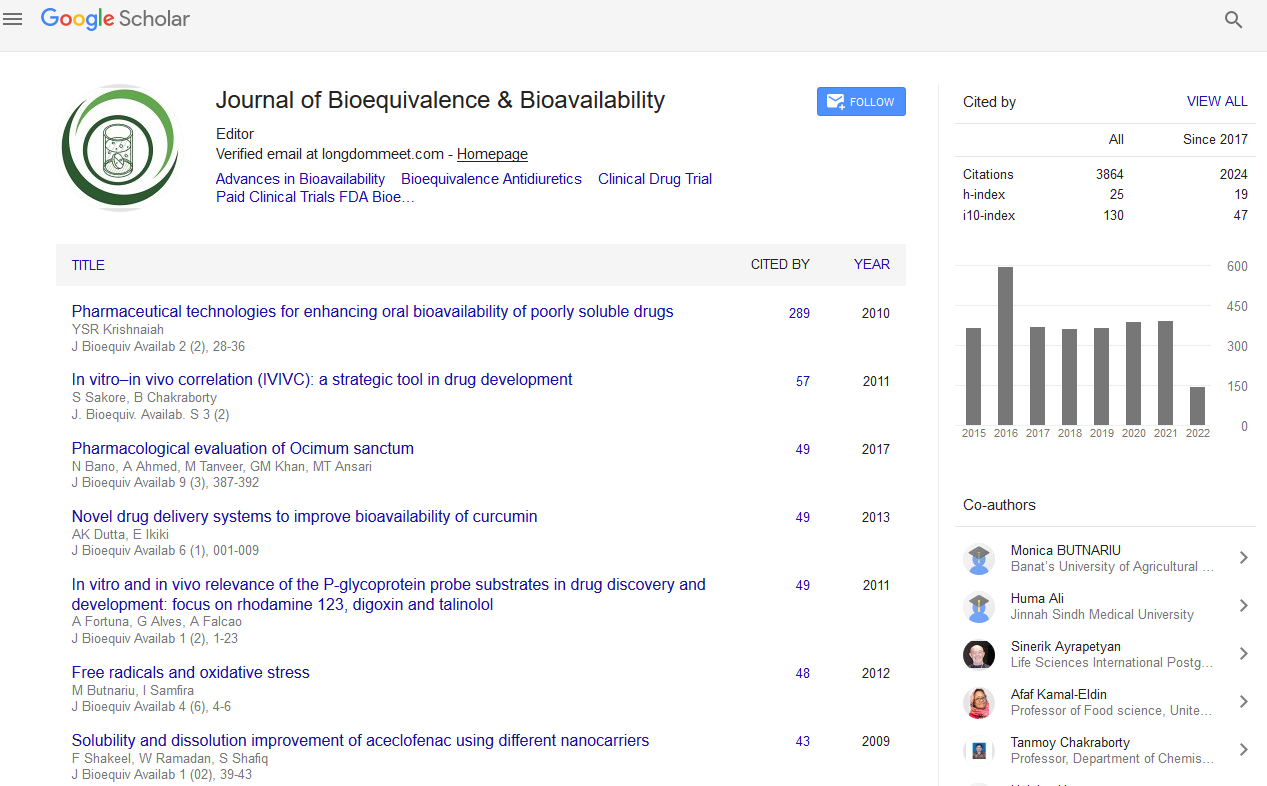PMC/PubMed Indexed Articles
Indexed In
- Academic Journals Database
- Open J Gate
- Genamics JournalSeek
- Academic Keys
- JournalTOCs
- China National Knowledge Infrastructure (CNKI)
- CiteFactor
- Scimago
- Ulrich's Periodicals Directory
- Electronic Journals Library
- RefSeek
- Hamdard University
- EBSCO A-Z
- OCLC- WorldCat
- SWB online catalog
- Virtual Library of Biology (vifabio)
- Publons
- MIAR
- University Grants Commission
- Geneva Foundation for Medical Education and Research
- Euro Pub
- Google Scholar
Useful Links
Share This Page
Journal Flyer

Open Access Journals
- Agri and Aquaculture
- Biochemistry
- Bioinformatics & Systems Biology
- Business & Management
- Chemistry
- Clinical Sciences
- Engineering
- Food & Nutrition
- General Science
- Genetics & Molecular Biology
- Immunology & Microbiology
- Medical Sciences
- Neuroscience & Psychology
- Nursing & Health Care
- Pharmaceutical Sciences
Single-walled-carbon-nanotube-based field-effect transistors with biosensing functions for prostate-specific-antigen
4th World Congress on Bioavailability and Bioequivalence: Pharmaceutical R&D Summit
May 20-22, 2013 DoubleTree by Hilton, Beijing, China
Hu Yan
Scientific Tracks Abstracts: J Bioequiv Availab
Abstract:
C arbon nanotubes (CNTs) have become attractive electronic materials to date. Single-walled carbon nanotube (SWCNT)- based field-effect transistors have been extensively studying since applications to future electric circuits and bio-sensing chips were proposed. Since the SWCNTs have high surface-to-volume ratios high sensitivities are expected in application to biosensors. Biosensing SWCNT-FET for detection of prostate-specific-antigen (PSA) which is an oncological marker for the presence of prostate cancer was proposed. In this talk, I present the fabrication and well-defined output/transfer characteristics of SWCNT-FETs by a simple wet- processing technique and their application to bio-sensor for detection of PSA. Single-walled carbon nanotube (SWCNT) field-effect transistors (FETs) were fabricated on strontium titanate (SrTiO3) substrate through a wet-process by using amide- functionalized SWCNT. The SWCNT-FET exhibited good gate-modulation for drain current at low operating voltages (-3 V). The hole mobility of 0.19 cm2/Vs with an on/off current ratio of 1.3. After immobilization of prostate-specific-antigen (PSA) antibody the SWCNT-FET clearly responded against the PSA. The drain current at -3 V of both drain and gate voltage almost linearly increased with increasing the concentration of the PSA
Biography :
Upon completion of his doctorate in chemistry at The University of Tokyo in 1995 Dr. Yan joined the R&D group at Ibaraki Research Laboratory, Hitachi Chemical Industry Co. Ltd. where he carried out research works to develop sophisticated electronic components by utilizing functional polymers. After his research works on conductive polymers at Tokyo University of Science, Yamaguchi for 6 years and on polymer gels at Hokkaido University for 3 years, Dr. Yan joined the Laboratory of Organic Robotics at the University of Yamanashi in 2007 where he is an Associate Professor. Before his above career in Japan, Dr. Yan had been educated in China, i.e., in Jilin University (1978-1982) for Bachelor of Science and in Henan Institute of Chemistry (1984-1987) for Master of Science. Dr. Yan who is a full professor of Zhengzhou University since 2011 has published 8 books, 59 papers, and 31 patents


